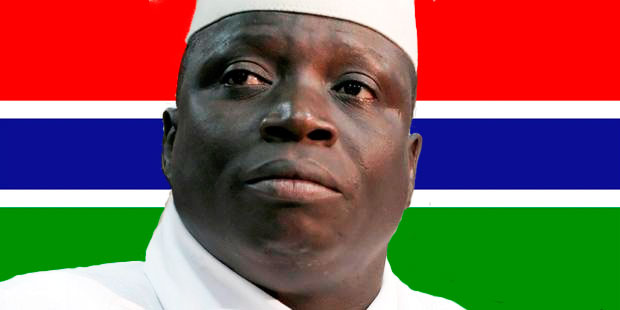By Dr Leke Adebisi
Independence thanksgiving was held in a number of churches over the last weekend purportedly celebrating the 60th anniversary of Nigeria as an independent nation. To some and indeed in many quarters it was nothing short of a shameful dance and an ignoble insult to the hardworking and tax-paying citizens of Nigeria. Most of the leaders accepted that the 60-year celebration called for a sober reflection, an expression that lacked depth as they immediately took to the dancing floor the next minute. Who else should be in a sackcloth with ashes all over? Recent record showed that Nigeria at independence had 47 million people in terms of population, similar figures in 1960 showed United Kingdom (UK) had 52 million people. By year 2000 when Nigeria turned 40 years after independence from the British rule, Nigeria population had grown to 115 million (59 million in UK). Another 20 years on – 2020, Nigeria now hold 220 million people (68 Million in UK), making Nigeria the most populous country in the continent of Africa. Of the 220 million in Nigeria, 66% represents young people under the age of 26 years old.
Recent International Monetary Fund (IMF) Gross Domestic Product (GDP) ranking (which is a representation of country’s total output, that is the total goods and services produced within a country in a given year) positioned the UK in 5th position with a GDP of $2.83 Trillion while Nigeria ranked 27th with $376 Billion. How do you square the circle, that UK’s economic output is eight times of Nigeria, bearing in mind that although the UK possesses a strong service industry, they are not a major competition in goods exports? Obviously, the major advantage the UK has over Nigeria is visionary leadership.
For over 20 years, since the transition to democracy of May 29, 1999 led by Chief Olusegun Obasanjo, Nigeria has not turned the corner, away from scalding corruption, depressed economy, failing infrastructures, pulverised communities, double digit inflation stance and so much more. Instead the corner has turned Nigeria and since the troubles have maintained a permanent seat right at its heart.
It is not too much to ask all the leaders of this great country dating back to the last 40 years to now voluntarily bury their faces in the sand, knowing that they have failed woefully. Seeing the untold hardship, they have inflicted on the citizens of this country and to the yet unborn generation, who will be burdened with the yoke of borrowings entered into by their parent’s generation, the benefit of which they may never enjoy as it was often ill-conceived borrowings, which eventually disappeared in private pockets.
The city of Dubai in the United Arab Emirate shares new familiar ground for Nigerians, since the tightening up of visa requirement by the UK and United State (US) governments. Comparative analysis of Dubai showed that the pleasure and glamour that excites and attracts Nigerian leaders to the city was all created in the last 30 or so years. It is well known that Honestly! Nigeria at 60? Dr Leke Adebisi Dubai was originally a desert with no ability to grow any crop but oil rich. Like Dubai, Nigeria is oil rich, but it is not a desert. Its arable land cuts across from the north to the south. The difference is visibly clear; while Nigerian leaders slew their economy with corruption, their Dubai counterparts were busy building infrastructure, economy, people and country, which is now the envy of the world.
In the words of Ayi Rand in Atlas Shrugged 1957, ‘ When you see that in order to produce, you need to obtain permission from men who produce nothing – When you see that money is flowing to those who deal, not in goods, but in favours – When you see that men get richer by graft and by pull than by work, and your laws don’t protect you against them but protect them against you – When you see corruption being rewarded and honesty becoming self-sacrifice – you may know that your society is doomed’ These words proved true in the case of Nigeria. Little wonder why the world’s corruption index publication placed Nigeria as one of the worst among the extremely corrupt countries.
Basic infrastructures in Nigeria are absolutely abysmal. Sixty years after independence, some of these infrastructures are now completely abandoned, for instance the railway network became totally derelict over so many years. The recent attempt to resuscitate it meant Nigeria must borrow capital funding from China at incredible lending conditionality, which is equivalent to mortgaging the future of the younger generations. This is typical of all other infrastructural developments in Nigeria.
What a shame that Nigeria cannot boast of a single thriving retail chain outlet of its own, instead it is littered up and down with South African retail outlets – Shoprite, the UK chain – SPAR etc.
Election in Nigeria is even a bigger shamble, 60 years after independence. The so- called advance countries will often threaten the politicians during election to keep them on the path of straight and narrow to ensure that the leadership does what is right in conducting themselves properly in election. For instance, the US and UK openly threatened to revoke the visas and access of certain politicians in Nigerian if they fail in doing what is right during the recent Governorship elections in Edo and Ondo state.
The lame ‘Giant of Africa’ as Nigeria is often referred is nothing short of humiliation, while it is true that Nigeria is the biggest in Africa in term of population and its weak output, Nigeria is no giant when it comes to leadership capability, productive economic strength, military prowess or even technological competence. The recent assault of the Nigeria embassy in Ghana this year was a major affront that remains fresh in the people’s memory. And as if that was not enough, the same Ghana mounted a war of discrimination against Nigerians trading in Ghana, locking down their shops and confiscating their wares. This is all because Ghana understands that the Nigerian government lacks the ability to defend its own right not to talk of its own citizen. In fact, some Nigerians would rather claim they are from Kenya or Rwanda to escape hostile treatment in places like Ghana and South Africa.
The scariest part of these data is that at Nigeria’s 60th anniversary, the country has a golden opportunity to prepare itself for the days of famine, which will surely come. All things being equal, the rising level of poverty could trigger a slowdown in procreation and impose higher mortality rates. If this results in a collapse of the country’s output that is presently weak, then another 60 years looks bleak for Nigeria. The 66% strong army of Nigerian youth that is seen today will grow up and in another 40 years form the 66% retiree composition of the population.
In the face of the demographic data that affirms that Nigeria in another 60 years could hit a population of 1.5 billion people. It is becoming abundantly clear that if nothing is done to stem the rot that has pervaded the society and institutions in Nigeria, the question will not be whether the nation will ‘turn the corner’, but rather, will there be a Nigeria?










